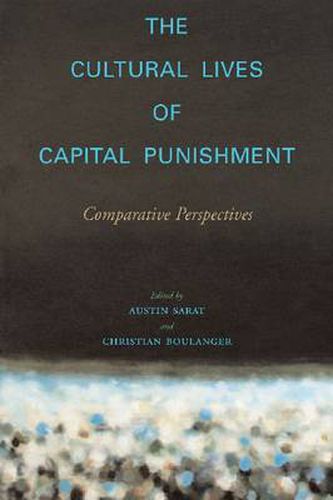Readings Newsletter
Become a Readings Member to make your shopping experience even easier.
Sign in or sign up for free!
You’re not far away from qualifying for FREE standard shipping within Australia
You’ve qualified for FREE standard shipping within Australia
The cart is loading…






How does the way we think and feel about the world around us affect the existence and administration of the death penalty? What role does capital punishment play in defining our political and cultural identity? After centuries during which capital punishment was a normal and self-evident part of criminal punishment, it has now taken on a life of its own in various arenas far beyond the limits of the penal sphere. In this volume, the authors argue that in order to understand the death penalty, we need to know more about the culturalives - past and present - of the state’s ultimate sanction. They undertake this cultural voyage comparatively - examining the dynamics of the death penalty in Mexico, the United States, Poland, Kyrgyzstan, India, Israel, Palestine, Japan, China, Singapore, and South Korea - arguing that we need to look beyond the United States to see how capital punishment lives or dies in the rest of the world, how images of state killing are produced and consumed elsewhere, and how they are reflected, back and forth, in the emerging international judicial and political discourse on the penalty of death and its abolition.
$9.00 standard shipping within Australia
FREE standard shipping within Australia for orders over $100.00
Express & International shipping calculated at checkout
How does the way we think and feel about the world around us affect the existence and administration of the death penalty? What role does capital punishment play in defining our political and cultural identity? After centuries during which capital punishment was a normal and self-evident part of criminal punishment, it has now taken on a life of its own in various arenas far beyond the limits of the penal sphere. In this volume, the authors argue that in order to understand the death penalty, we need to know more about the culturalives - past and present - of the state’s ultimate sanction. They undertake this cultural voyage comparatively - examining the dynamics of the death penalty in Mexico, the United States, Poland, Kyrgyzstan, India, Israel, Palestine, Japan, China, Singapore, and South Korea - arguing that we need to look beyond the United States to see how capital punishment lives or dies in the rest of the world, how images of state killing are produced and consumed elsewhere, and how they are reflected, back and forth, in the emerging international judicial and political discourse on the penalty of death and its abolition.